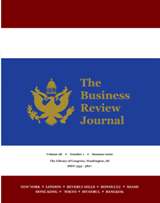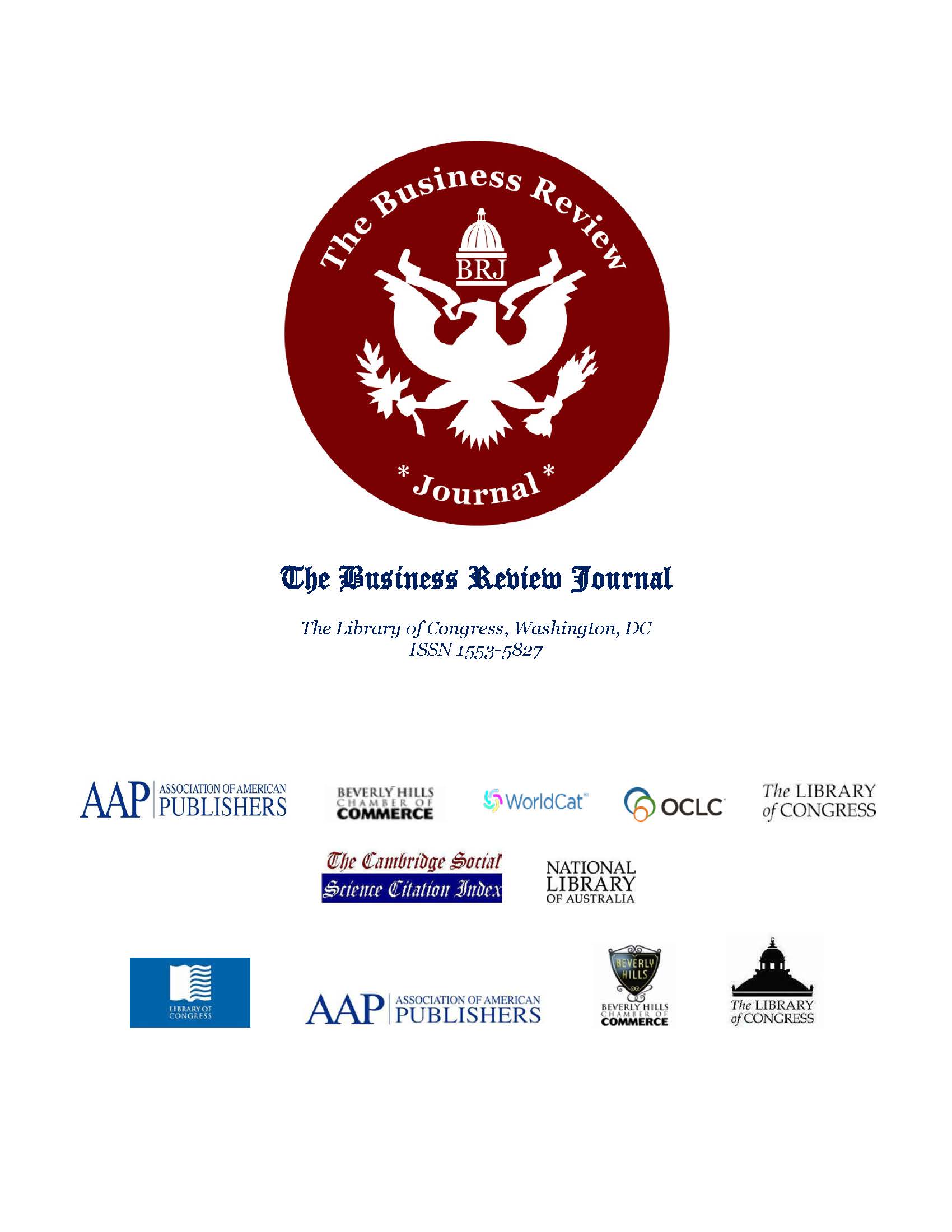|
Are Instruction
Expenditures Cost-Effective in Improving High School Completion in Hawai‘i’s
Maui District?
Dr. Larson Ng, University
of Hawai‘i at Mānoa, Honolulu, Hawai‘i
ABSTRACT
The following study
attempted to analyze the cost-effectiveness of instruction expenditures on
public high school completers in Hawai‘i’s Maui District comprised of the
islands of Maui, Molokai, and Lanai. Using the high schools that comprise the
Maui District, a correlation and bivariate regression procedure were employed to
determine the nature and econometric relationship between instruction
expenditures and high school completion from 2000 to 2007. Although instruction
expenditures had predominately increased for all high schools, increases in
completion were not observed for all schools. Hence, with the exception of
Lahainalua High School, there was no conclusive econometric evidence to confirm
the cost-effectiveness of instruction expenditures lending itself to higher
numbers of high school completion in the Maui District during 2000 to 2007.
Instruction is a critically important factor that contributes to high school
completion. Although there are many techniques to measure the productivity of
instruction, assessing its effectiveness through a financial perspective remains
one practical way to accomplish this task (Beard, 2009). Consequently, this
study will attempt to test whether increases in instruction expenditures result
in higher numbers of high school completion by analyzing the Hawaii’s Department
of Education’s (DOE) high school instruction expenditures (i.e., teacher
salaries and benefits, substitutes, instructional paraprofessionals, pupil-use
technology, software and instructional materials, trips, and supplies) and its
econometric relationship with high school completers from the Maui District
(Hawaii Department of Education, n.d.). With this research, it is hoped that the
results will attempt to confirm whether increased instruction funding is
cost-effective in increasing public high school completion. The following
section will go over the high school instruction expenditures, size of its
graduation classes, and high school completers for the DOE’s district of Maui as
well as all of its individual high schools from 2000 to 2007. Based on Table A1,
instruction expenditures have been consistently increasing on an average of
9.99% with a standard deviation of $6,334,574.93 per year, respectively.
Graduating classes has seen an inconsistent pattern of growth during this period
and had an average growth rate of 0.24% with a standard deviation of 70 students
per year, respectively.
Full text
The Correlation Between
Florida’s Blood Alcohol Concentration Testing Laws in Motor Vehicle
Traffic
Accidents Resulting in Fatalities and Florida’s Total Number of Confirmed
Alcohol-Related
Traffic Fatalities Reported From 2000 – 2015
Dr. Ashley Werdann, Public
Policy Institute, Jacksonville University, FL
Dr. Richard Murphy, Davis
College of Business and Public Policy Institute, Jacksonville University, FL
ABSTRACT
The purpose of this study
was to determine if Florida’s blood alcohol concentration (BAC) testing laws in
motor vehicle traffic accidents resulting in fatalities had a direct correlation
with Florida’s total number of confirmed alcohol-related traffic fatalities
reported from 2000 through to 2015. Florida statutes, case law, and policies
governing BAC testing and reporting in motor vehicle traffic accidents were
examined prior to reviewing annual reports written by the Florida Department of
Highway Safety and Motor Vehicles (FLHSMV). The FLHSMV annual reports extracted
information from Florida law enforcement agency reports of motor vehicle traffic
accidents from all counties in Florida based upon the same criteria, which
demonstrates how the reporting of motor vehicle traffic accidents of all types
dramatically differs from county to county, as well as from investigating
officer to investigating officer. The results indicate that Florida’s
discretionary BAC testing and reporting affects both the total number of
fatalities resulting from motor vehicle traffic accidents and the total number
of confirmed alcohol-related traffic fatalities. This study concludes that
mandatory BAC testing in alcohol-related motor vehicle traffic accidents
resulting in fatalities in conjunction with accurate and complete reporting of
BAC testing results is required to decrease the number of confirmed
alcohol-related traffic fatalities in Florida. State legislation requiring BAC
testing after alcohol-related motor vehicle traffic accidents resulting in
fatalities varies from state to state (NHTSA, 1982). The chemical tests to
determine BAC are the fundamental tools for enforcing state laws relating to
driving under the influence (DUI) / driving while intoxicated (DWI) (NHTSA,
1982). According to the National Highway Traffic Safety Administration (NHTSA),
all state laws indicate reliance on a model law that incorporates eight (8)
general components (NHTSA, 1982). Any individual who operates a motor vehicle on
a public highway has given his or her consent to chemical tests of his or her
blood, breath, or urine for the purpose of determining his or her BAC (NHTSA,
1982). The aforementioned only applies if the said individual is arrested for
conduct resulting out of alleged acts committed while driving or in physical
control of a motor vehicle while under the influence of alcohol (NHTSA, 1982).
The chemical tests shall be administered by a law enforcement officer, who has
reasonable belief and / or probable cause that the said individual is under the
influence of alcohol while driving or in physical control of a motor vehicle (NHTSA,
1982). In the event said individual refuses to submit to the chemical tests
when requested, the law enforcement officer shall discontinue any further
attempt (NHTSA, 1982).
Full text
Regulation and Bank
Performance
Dr. Zgarni Amina,
University of Tunis El Manar,
Tunisia
Dr. Hassouna
Fedhila, Professor, University of Manouba, Tunisia
ABSTRACT
Banks are the
cornerstone of all the economies of the world and the basis of all financial
mechanisms. However, the context of deregulation and liberalization in which
they operate risks affecting their financial stability, and calls for prudential
regulation that is supposed to focus on their performance. The objective of this
research is to assess the effect of prudential regulation issued by
international regulators on bank performance in a Tunisian context. Empirical
validation from a sample of all listed Tunisian commercial banks, observed over
a period stretching from 2001 to 2016, shows that the prudential rules applied
in the context of the Tunisian banking sector and measured by the solvency ratio
and liquidity ratio improve the accounting performance of banks as measured by
the return on assets (ROA). We have also
shown from a robustness test that prudential regulation measured by the solvency
ratio favors accounting performance measured by return on equity (ROE). It
cannot be denied that banks enjoy a dominant position in all economies and that
they are the main driver of economic growth (King and Levine 1993 and Levine
1997). This only serves to reinforce the challenges that supervisors may face,
especially in the context of disintermediation, intense competition, excessive
risk-taking, deregulation and diversification in which banks operate. Today,
this new banking context is also characterized by internationalization fueled by
technological progress and recent financial innovations that have been behind
better risk management. Added to this is a new banking reality marked by the
decommissioning of credits, the liberalization of foreign exchange, the open
markets and the increasingly volatile rates that have led to an unprecedented
vulnerability of market activities. In addition, the erosion of margins combined
with economic deterioration have only increased the risks for these banks. The
latter face the enormous challenge of realizing profits from their traditional
activities, maintaining their solidity and achieving a satisfactory level of
profitability, which explains their increasing risk taking both for
intermediation and market activities. In addition, it is commonly accepted that
the bankruptcy of a bank causes adverse effects on other financially sound
banks. All these considerations explain the use of supervisory authorities to a
heavy and precise regulation of the banking industry which is clearly essential,
and which is in line with the deregulation process, aimed at maintaining the
integrity of the financial
market system, and to foster
and
strong the
banking sector stability.
As such, Barth, Caprio and Levine (2001) argue that all governments tend to
regulate and control them to ensure the stability of their economies.
Full text
The Effect of
Information Security Management Systems Implementation on Organizational Culture
Dr. Wen-Lung Tsai,
Oriental Institute of Technology, New Taipei City, Taiwan
Xin-Yu Bai, Oriental
Institute of Technology, New Taipei City, Taiwan
ABSTRACT
In
this paper, we theorized on the effect of organizational culture on the
implementation of information security management systems. Using the findings of
a case study, we identified general criticisms of security standards.
Furthermore, we developed a cultural
construction that illustrated the aspects of culture that best assist an
enterprise in the implementation of information security management systems.
Finally, we proposed that institutional
management play a crucial role in the further growth of the adoption of security
standards. Many organizations are increasingly dependent on information systems
(IS) and spend much money on information security management systems (ISMS).
However,
Wright (2005) reports that half the organizations that had implemented ISMS were
experiencing challenges, while the other 50% had failed (cancelled prior to
completion or delivered and never used). Problems regarding the cost,
timeliness, and effects of implementation still exist. To reduce costs, improve
timeliness, and provide better effects, many standards and models related to the
development process have been defined, such as ISO/IEC 27001:2013 (ISO, 2013).
The adoption of ISO/IEC 27001 by organizations brought good results with regard
to delivery time and the reduction of defects and costs. ISO/IEC 27001 spells
out the minimum requirements of information systems and ISMS in different
processes and in each PDCA (Plan, Do, Check, Action) phase. The model is used
for two purposes. The first is to improve measures of control, and the second is
to benchmark companies. After widespread adoption, ISO/IEC 27001 has become a
standard for ISMS. However, results are disappointing and the failure rate high,
despite the enormous amount of resources spent on ISMS. This may highlight the
lack of applicability of ISO/IEC 27001 in organizations and between countries
(Sharp et al., 2000). Other reasons relate to ISMS in general. Researchers have
focused on a various problems and obstacles confronting organizations engaging
in ISMS (Mathiassen et al., 2005). There is general agreement that ISMS is
related with considerable organizational changes both in terms of control
measures and complexity. The success of ISMS largely depends on how change is
perceived and managed. Thus, an organizational culture perspective could be
helpful in managing complicated management processes, such as that adopted in
studies by Iivari et al. (2007) and Cabrera et al. (2001). Organizational
culture applies to numerous aspects of an organization, such as basic beliefs
and assumptions, models of behavior, values, rituals, symbols, practices,
heroes, deliverables, and technology (Schein, 1985; Gagliardi et al., 1986).
However, our concern, which was limited to the effect of implementing ISO/IEC
27001, viewed organizational culture in relation to ISMS.
Full text
The Role of Volatility
in Market Efficiency of Investment Banks During Financial Crisis
Dr. Han-Ching Huang,
Chung Yuan Christian University, Taiwan R.O.C.
Su-Shin King, National
Taiwan University, Taiwan R.O.C.
ABSTRACT
This study examines the
investment bank spillover efficiency in financial crisis. Specifically, we aim
to investigate the role of volatility in market efficiency of investment banks,
especially in the situation of market turbulence before and after Lehman
Brothers Holdings, Inc filed for Chapter 11 bankruptcy protection. We find that
cross-effect, representing market maker hedging between two investment banks,
existed among market makers in maneuvering inventories. Contrary to
cross-effect, the autocorrelation-effects in investment bank show a better
performance for market makers to mitigate price volatility. A nested causality
approach, which examines dynamic return-order imbalance relationship during the
price formation process, confirms the results. Market
efficiency has been discussed for decades since Fama (1969). However,
during market turbulences, investors are more skeptical
toward market efficiency, such as the financial crisis in 2008. Brooks (2007)
finds higher inefficiency during 1997 Asian financial crisis. Moreover,
investors overreacted not only to local news, but also to news originating from
other markets, especially when the news events were adverse.
Bowe and Domuta (2004) examine Jakarta Stock Exchange (JSX)
data and find evidences of herding and positive feedback behaviors by both
foreign and domestic investors before, during, and after the 1997 Asian
financial crisis. Choe et al. (1999) documents that
investors who engage in herding and positive feedback trading push prices away
from fundamentals and create return-generating noise with excess volatility.
The financial crisis in 2008, after Lehman Brothers file
bankruptcy protection, makes international capital markets in turbulence
(Melvin and Taylor, 2009; Lins et al., 2017). In this study, we examine the
market efficiency process in spotlight investment bank industry. Tracing back to
Glass-Steagall Act (GSA) in 1933, investment banks were separated from
commercial banking activities. However, Congress established the
Gramm-Leach-Bliley Act to eliminate the GSA restrictions against affiliations
between commercial and investment banks in 1999. This could be the root cause
for the crisis. Chordia et al. (2002) find that trading volume affects stock
returns efficiently. They use order imbalance as the indicator of trading volume
to reveal private information held by market participants.
Chordia and Subrahmanyam (2004) also find contemporaneous imbalances are
strongly related to contemporaneous returns, but the positive relation between
lagged imbalance and returns disappears after controlling for the
contemporaneous imbalances. Cross-effect represents a stock return affected by
another stock order imbalance, especially in highly related investment
industry.(1) Andrade et al. (2008) find a positive
cross effect, implying a positive relation between trading imbalance in one
stock and another stock return.
Full text
|

 The Business Review
Journal
The Business Review
Journal
.gif)